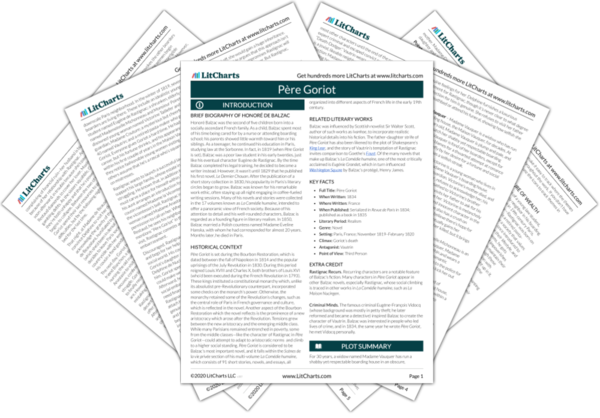Vautrin, for all his carefully laid plans and criminal expertise, is human, too—he can’t fully control the circumstances around him. And even a passing remark can cause a petty individual, like Mademoiselle Michonneau, to move against him. Gondureau’s intentions aren’t pure, either—like many people, he’d prefer to take questionable shortcuts in order to make life easier for himself.
